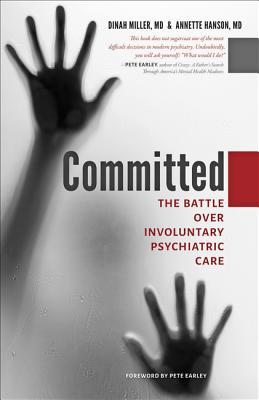This is an excellently written look at the pluses and minuses (mostly minuses) of involuntary hospital commitment for psychiatric care, with a little about involuntary outpatient care. The authors look at all the angles; the person's experience, opinions from prominent practitioners and advocacy groups, hospital staff's (mostly doctors) experiences, laws and court systems in various states, customs in various hospitals, and (they seem to think this is most important to the public) the prevention of mass murders by people with mental illness. While being sure to present the opposing views, they come down firmly for using involuntary commitment as sparingly as possible.
Everything in the book is well considered and presented as factually and scientifically as possible. The authors cite a number of studies, but, as they point out, very few meet the gold standard for study design.
Unfortunately, I am familiar with the mental health care disaster that is the regional situation here, and is likely not worse than most regions in the US. The major mental health care provider is the jail system. They have few options of where to send mentally ill people who are picked up for ranting on the street or whatever, so they keep them, and medicate them, often for months. It was three months for our family member. Though it's absolutely the wrong setting, they try to do it well. They even had a counseling group for families, where they talked about what might ideally happen, but didn't happen for most of the group. Our person was finally accepted into a non-jail program (500 miles away) because they had private insurance, but that wasn't possible for most. Even once out in the community, people who don't have a family with the resources to navigate a complicated yet inadequate system don't have good prospects. Another family member in another state recently received negligent "care" that could have killed them.
So. I liked this book. I agree with almost all of the authors' observations and viewpoints. They gave a lot of space to the sad state of psychiatric care in this country and offered a lot of recommendations. And what happens with those? I'm not hopeful.

